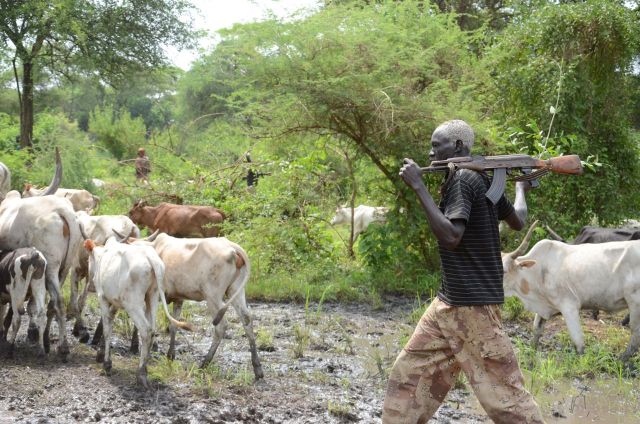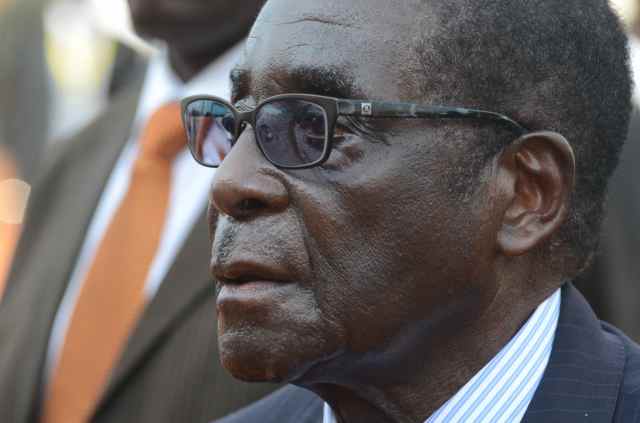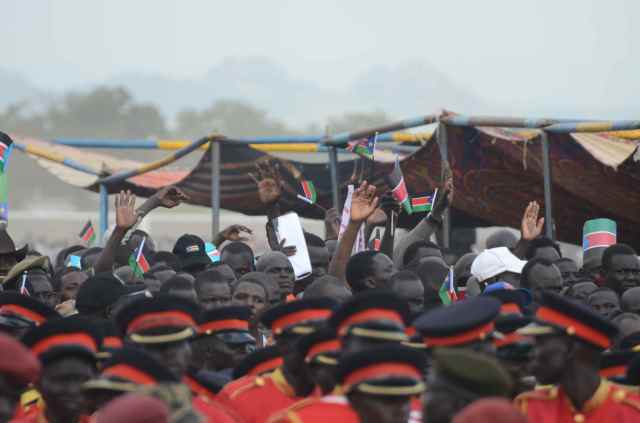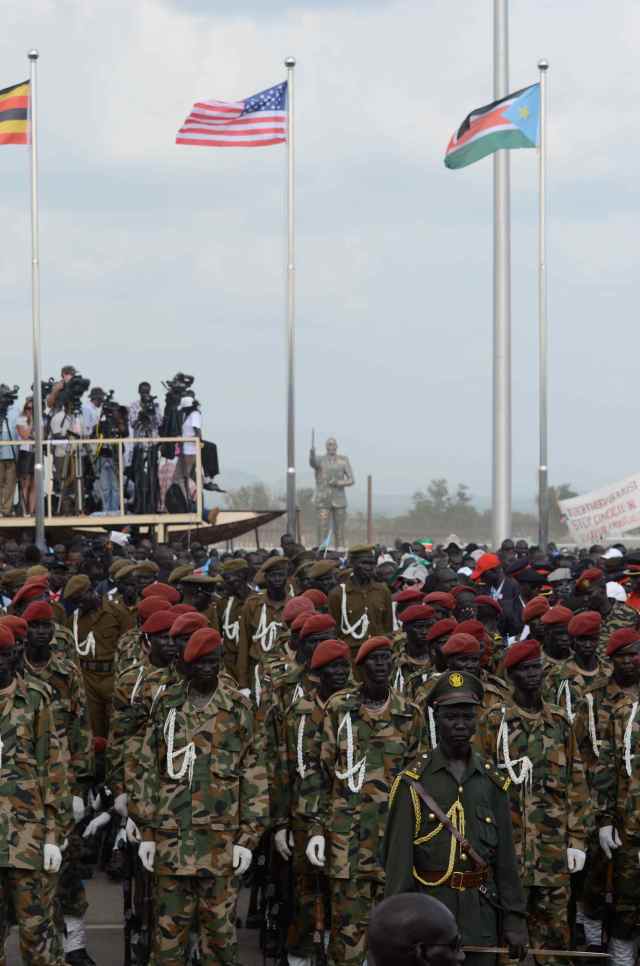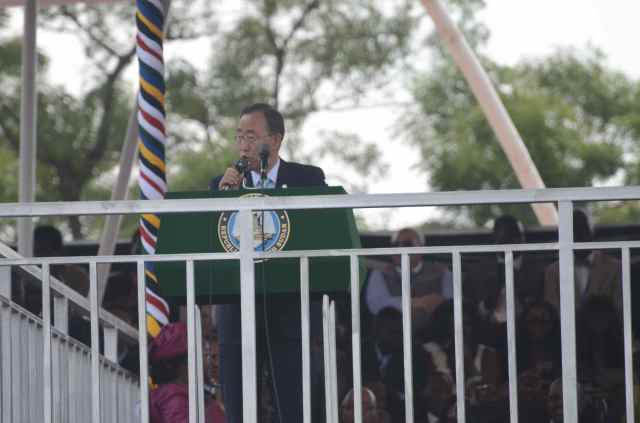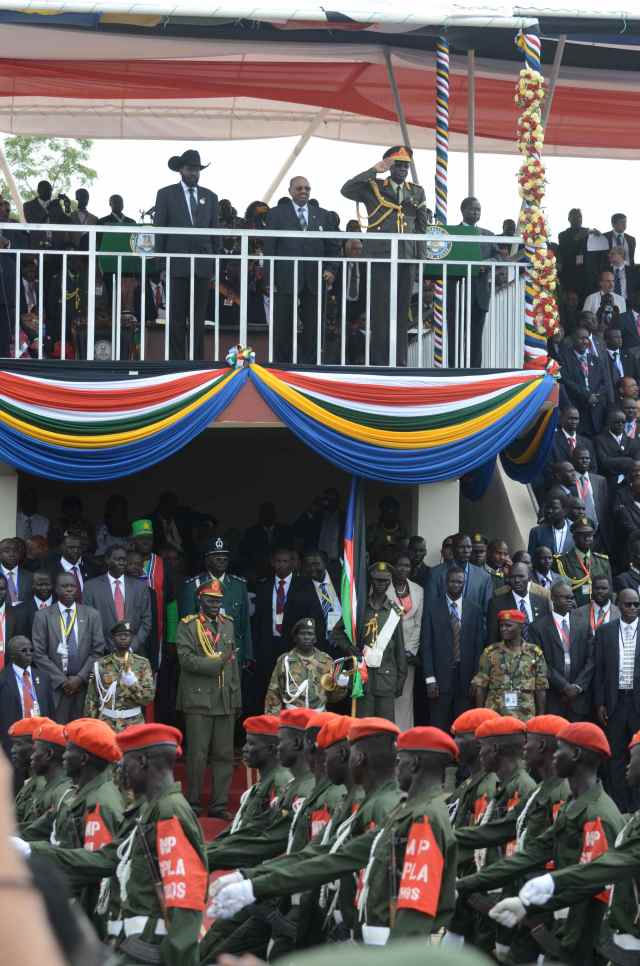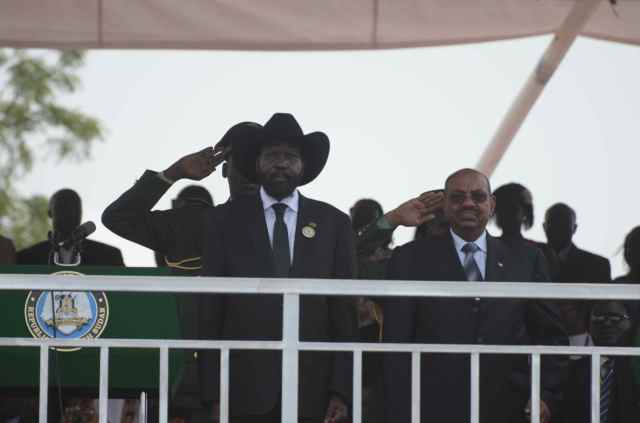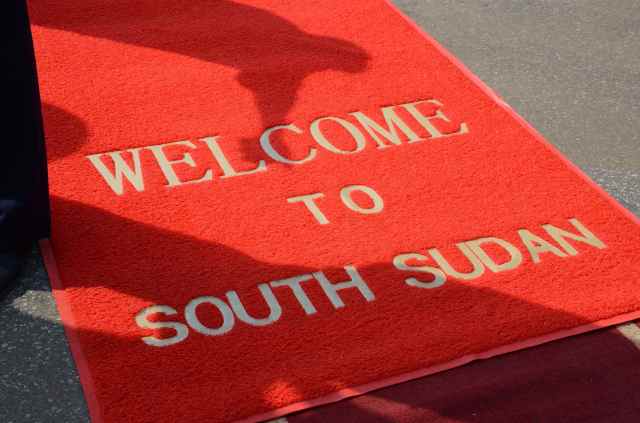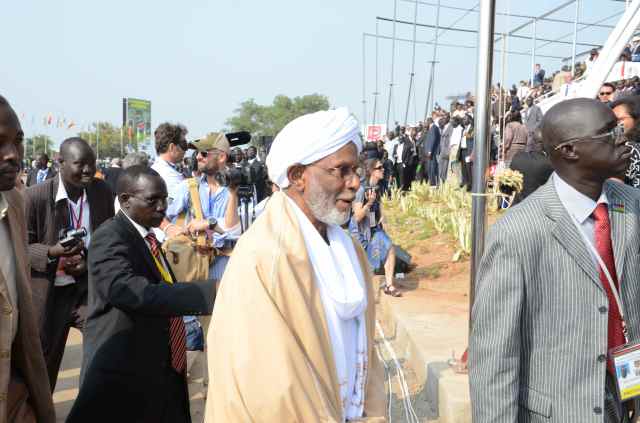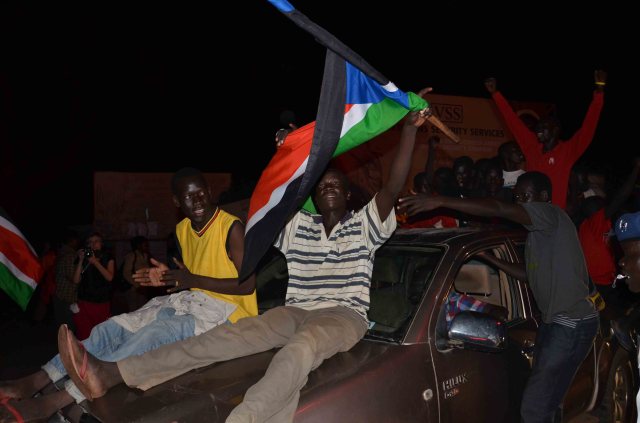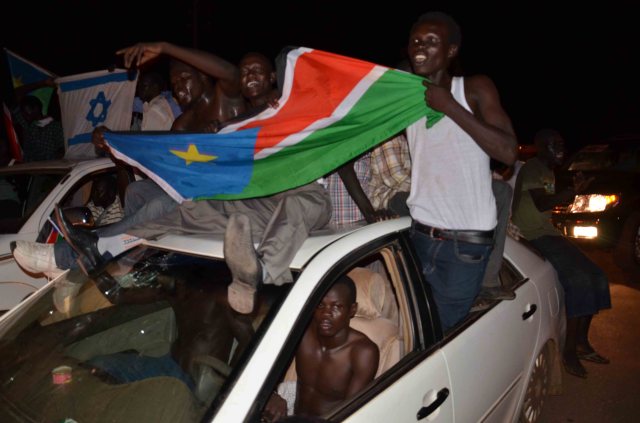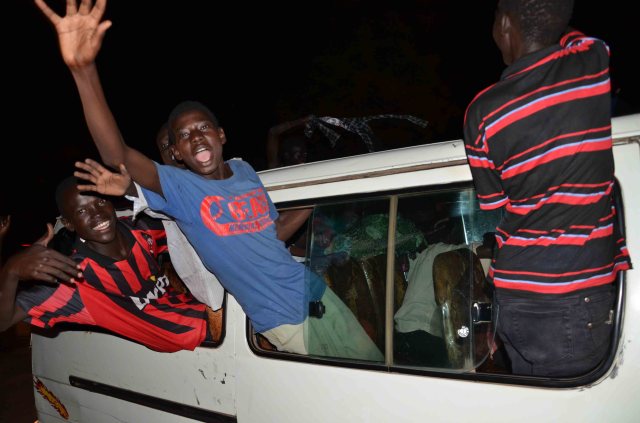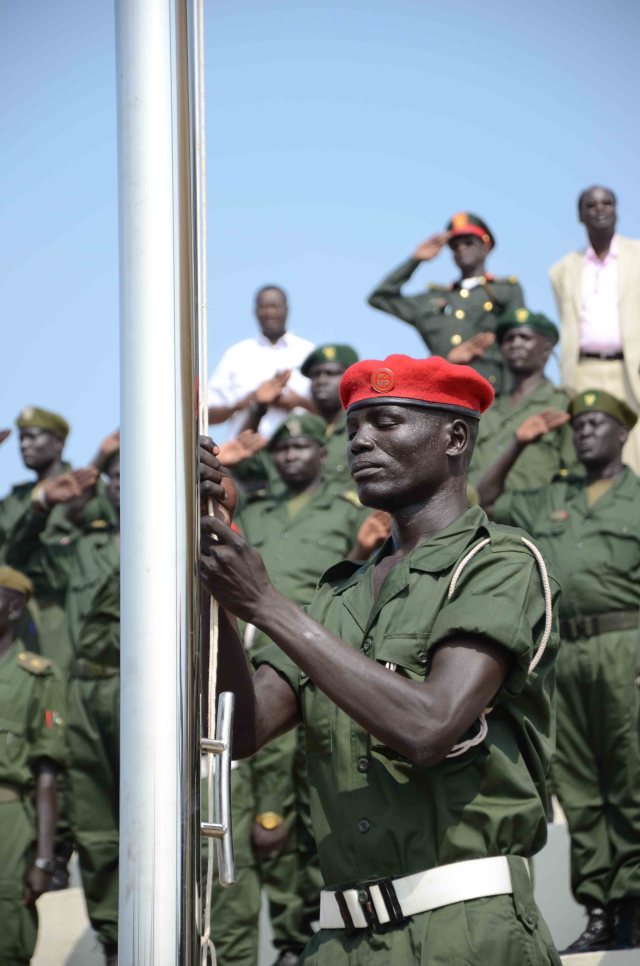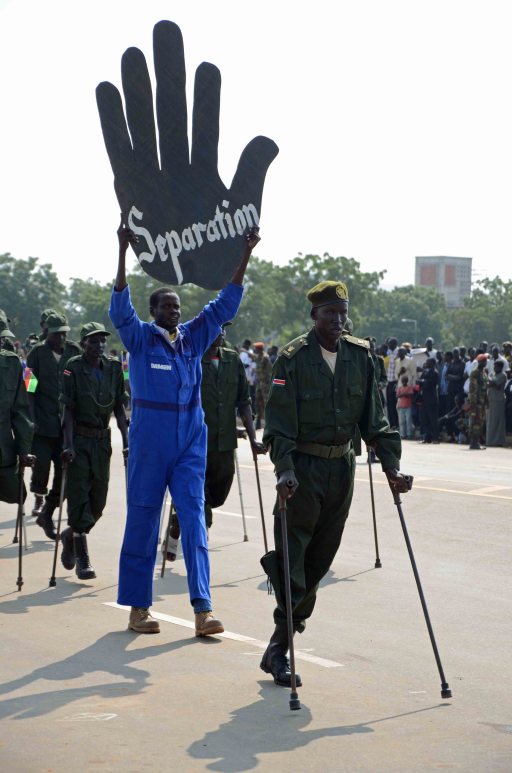
As the independence hangover wore off around Juba I seized an opportunity to get out of the new national capital and see more of South Sudan. I left early Thursday morning for the town of Bor in Jonglei state. Jonglei is the biggest of the 10 states in the country, and Bor specifically has an important history as the birthplace of the rebellion that led to the second civil war and the creation of the SPLM/A. Just a few kilometers from Juba the tukuls and roadside shops vanish, leaving only the bush and the scattered remains of charred vehicles from the war era. The rough road follows the snaking course of the Nile north, the lush land that stretches for miles in both directions untouched now but perfect for proper farming as agricultural investment begins to arrive. A small village or Army outpost appeared every hour or so, and as we passed into Jonglei from Central Equatoria the cattle herds crossing the road after a drink from the river became more frequent.
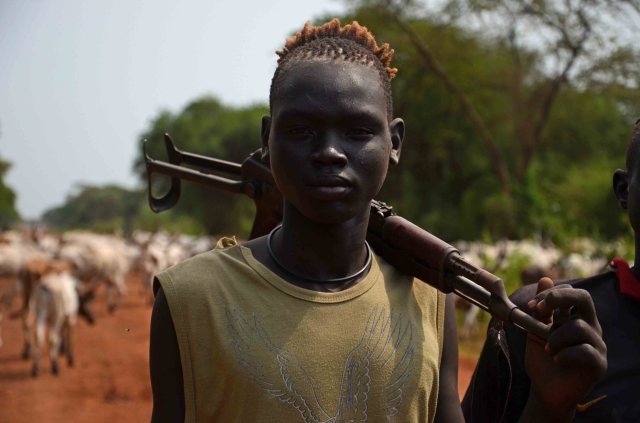
The 4 hour drive took 7 because of the condition of the road, and we arrived in Bor in the early afternoon. The town itself is fairly bland, but its political and social situation as the state capital is fascinating and complex. Talk of cattle raiding—mostly absent in Juba especially around independence—is unavoidable here. It is the cause of widespread insecurity and heightened inter-tribal conflict. And everyone blames the Murle tribe. I don’t know enough about the situation to comment with authority, but I do know that other tribes are involved in these conflicts. Raids occurring in northern Jonglei, hundreds of kilometers from Murle land, are blamed on the Murle. It’s worrisome to hear everyone accusing just one group. The Murle are known to be aggressive and have a history of child abduction (apparently because of genetic fertility problems). But the solution is not to scapegoat. Government officials should be assessing the root causes of the problems, particularly the failed disarmament program.

The cattle camp I visited was raided only two months ago (the camp is walking distance from Bor town, and even closer to the police headquarters). I asked the herders why they couldn’t defend themselves or retaliate. One old man held up a stick and said, “can I defend against their guns with this stick?” They were disarmed three years ago, while other herders in the same county were left with their guns.
Disarmament is not easy, but if it is going to be done it has to be done right. One government official said that the Murle were not disarmed because doing so would almost guarantee their complete destruction by other tribes. But left with their guns, the Murle continue to steal cattle and children, according to most people. Others, like the herders I talked to, were disarmed because they live close to the large population in town, leaving them vulnerable to attacks from the outside. And the general opinion is that so many weapons are left over from the war that even the disarmed groups can rearm fairly easily. I certainly don’t have the solution or even a firm understanding of the problem, but it is a bit dismaying to hear complacence, especially from government officials.

The next morning on the way out of town we met with the newly formed Livestock Patrol Unit, a special division of the state police. Funding for the creation of the unit came from the UN, but no money was provided for operation costs (the UN seemingly expected the government to take over, and the state government felt they didn’t need to get involved because the UN had been responsible for the program). As a result the unit has no functioning vehicles (one is broken and the other has no fuel) and a staff of 21. They patrol on foot but don’t walk further than 6 or 7 kilometers. Personally, I think helicopters would be a valuable tool. They can patrol vast areas in short periods of time, report local problems, and potentially engage raiders from the air. Developing roads should still be a priority, but the process will be slow for sure. The visible presence of police in the sky would likely be enough to deter much of the criminal activity. Given the amount of money spent by NGOs here it wouldn’t be implausible to get a few hundred million dollars for a national fleet of multipurpose helicopters.

Cattle herding is a way of life that is here to stay. Cattle are currency (for brides especially), the source of names, and the focus of songs, dances, and rituals. Dealing with cattle raiding won’t be easy for the new government, but it is an important and necessary step for establishing security across vast portions of the new nation.
